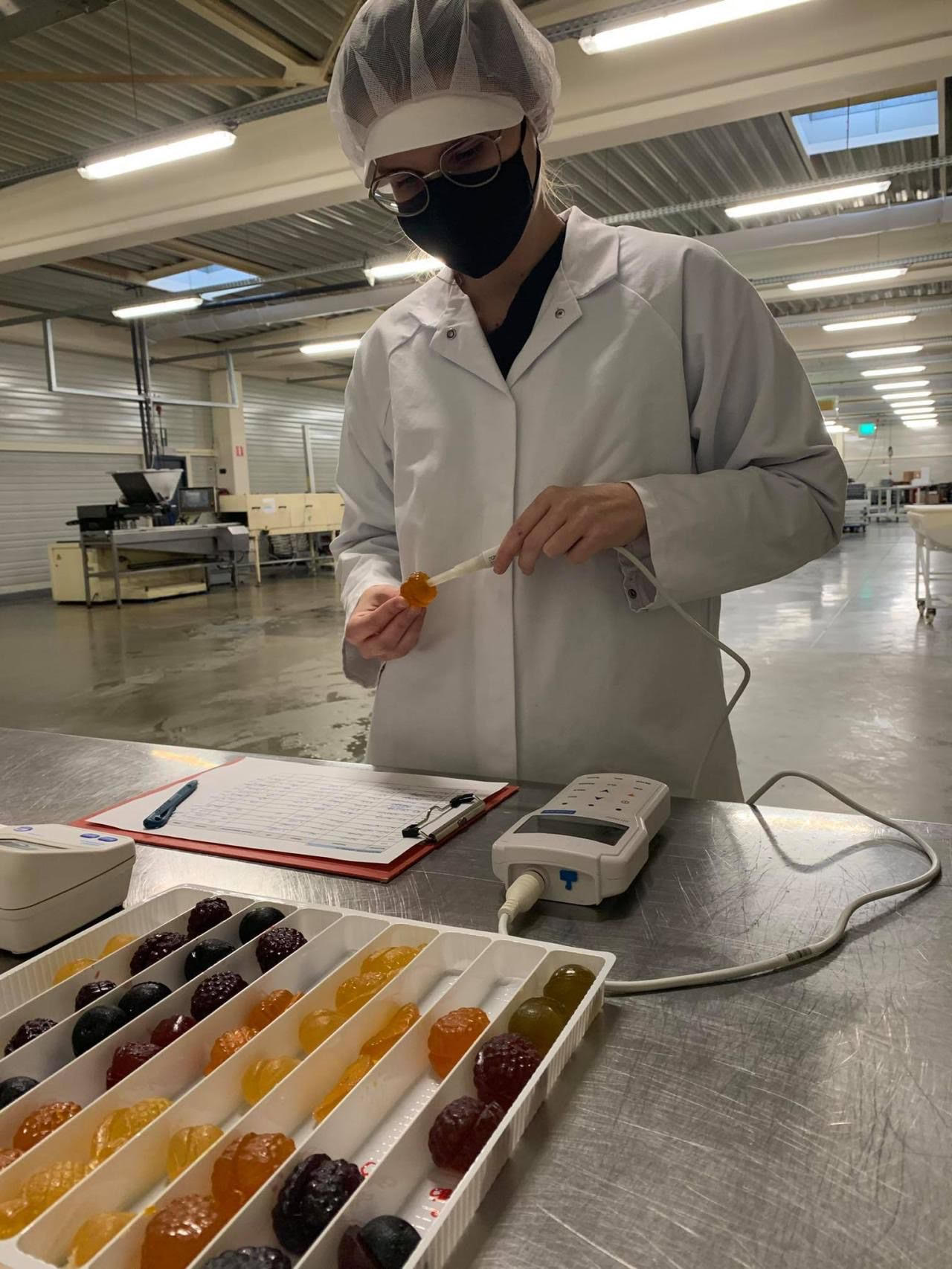Automation, less sugar and on the way to an organic range
Young people with a bachelor’s degree or university background can give small and medium enterprises all kinds of insights. Conversely, companies can help young people convert their classroom knowledge into relevant work experience and skills. So it’s a win-win situation. At Confidas, we always look forward to welcoming students and coaching them on their career paths. For example, we got to know Chloë Van de Voorde last year. She helped us out with three of our current projects: the automation of the process to remove our fruit jellies from the moulds, the development of fruit jellies with a lower sugar content and the creation of an organic range. We are excited to share her findings with you!

Automation of the de-moulding process
As a company, you always want progress. You aim for growth. In doing so, however, it is important to pay attention to the people who actually do the work. That is why Chloë’s first project focused on the automation of the process to remove our fruit jellies from the moulds. De-moulding is still done manually at present. That makes it a physically demanding and time-consuming task. To automate de-moulding, further standardisation of our recipes and production process is crucial. The fruit jellies always need to have the same consistency if they are to be removed from the moulds automatically. That was not always the case in the past. Possible solutions were investigated by means of scientific experiments. On the one hand, we altered some of our recipes, and on the other we adjusted our method. Fortunately, these changes have had no impact on the taste and texture of the jellies. The result is jellies that are much easier to remove from the moulds! (Read more here about the fruit jelly production process).
From Nutri-Score D to C
The next project that Chloë helped us with was reducing the sugar content of our fruit jellies to improve our Nutri-Score from D to C. Adding sugar is crucial to achieving the desired texture. Thanks to Chloë’s research, our fruit jellies with a minimum fruit content of 60% now have a Nutri-Score C. That was made possible by increasing the fruit and fibre content.
An organic range
The third project is still in its infancy: developing an organic range with the following fruit flavours: apricot, pear, strawberry, raspberry and blackberry. Almost all the ingredients in this range will be replaced by organic ingredients. The initial results for the apricot and raspberry flavours are certainly successful.
That is a short summary of Chloë’s three research projects. We asked her to cast her mind back briefly over the past year and share her most important finding with us: “I have really flourished during this work experience and also gained more confidence in what I am doing. As well as that, I really enjoyed working with the head of production. She is an expert in making fruit jellies and gained her knowledge on the job, over a period of 30 years. Most of my knowledge is based on science and literature. I found the combination of the two a real learning curve! I discovered that fruit jellies are not complex products in themselves, but that the tiniest variation in the recipe can have huge consequences for the result.”
To be continued in 2022!
